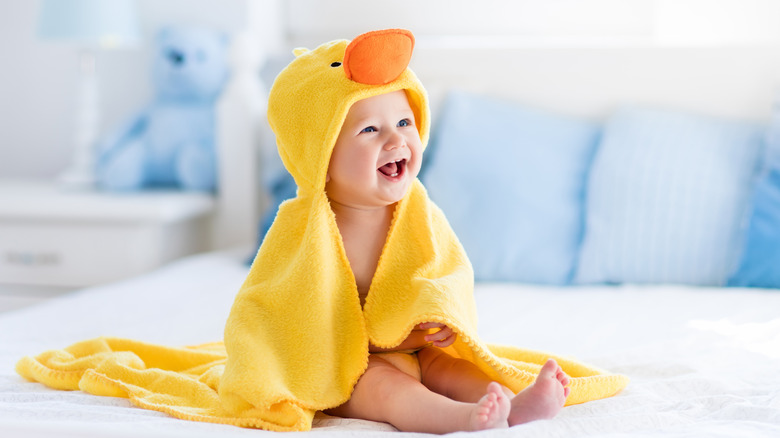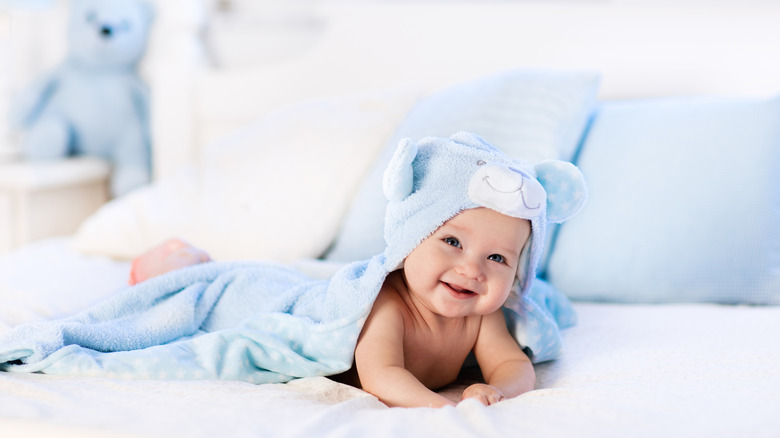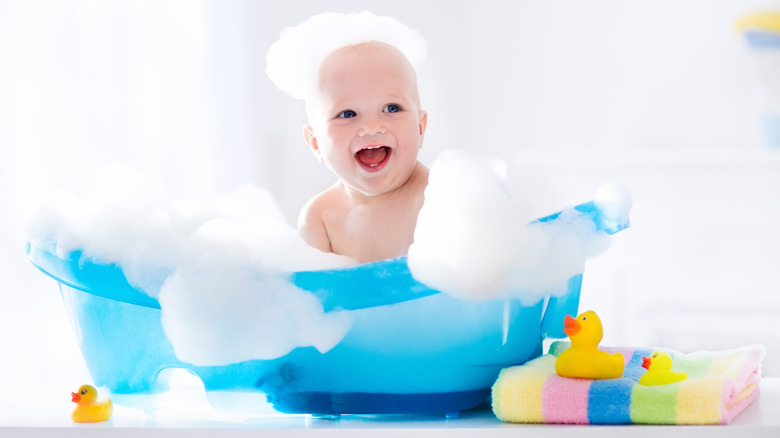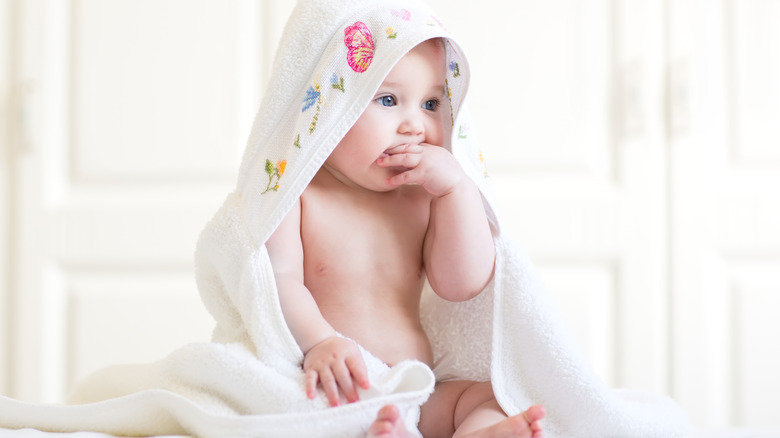What Your Baby's First Word Really Means
There is nothing quite as exciting as hearing your baby say their first word. And while many new mothers can only hope that they'll hear the word "mama," according to Motherly, it is more common for babies to first utter the word "dada." This is because at the stage of saying their first word, babies are usually still bonded to their mothers. Generally, they differentiate their father as someone outside of themselves and their mother, which is one of the reasons they have a tendency to say "dada" first.
Experts believe that the reason "mama" and "dada" are common first words is because they are both easy for babies to learn. Judit Gervain, who conducted a language study for the Proceedings of the National Academy of Sciences, explained to Yahoo!, "It's probably no coincidence that many languages around the world have repetitious syllables in their 'child words.'" However, more often than not, when a baby's first words are "mama" or "dada," they aren't necessarily referring to their parents.
Babies' first words are often just babble
"Kids start with simple words that have various meanings," Sandra Disner, Ph.D., a professor of linguistics at the University of Southern California, told Yahoo!. "The word 'up' could mean 'pick me up' or 'the moon in the sky.'" Harvard education psychologist Catherine Snow agrees, explaining to The Atlantic that what parents might think is their baby's first word could actually just be baby babble.
A study developed the Communicative Development Inventories in America, which was led by UC San Diego researcher Elizabeth Bates, found that parents are usually able to understand their babies' babble even if it's not actual words. Ultimately, parents are best placed to understand their baby's wants and needs because they can monitor and decipher body language and behavior, allowing them to guess what their baby's babble really means.
You can encourage your baby to talk simply by talking to them
Professor Anne Fernald, a developmental psychologist at Stanford University who's studied language development in children extensively, believes communication is key in assisting your child's language development (via The Guardian). "You need to start talking to them from day one," Fernald said at the American Association for the Advancement of Science's annual meeting several years ago. "Parents who talk more to their kids are more likely to realize their developmental potential," she continued.
According to Parents, your baby's first words usually occur at the 12-month mark, with their vocabulary significantly expanding by the time they reach 18 months. In order to encourage talking at 12 months, there are several things you can do. "The best thing you can do is talk to your 1-year-old continuously throughout the day," Dr. Michelle Macias, professor of pediatrics at the Medical University of South Carolina told Parents. "You may feel silly saying, 'Now I'm putting the potatoes into the pot,' but this constant exposure to language will help her learn."
Dr. Stuart Teplin, a developmental and behavioral pediatrician agrees, adding that using real words when talking to your baby is key, as they can usually understand more words than you think.
At 18 months, most babies know 10 words
Though every baby is different, Healthline notes that at 18 months, most babies should be able to say about 10 words, will be able to understand directions, and can even name things they come in contact with every day. It's best to keep in mind, though, that these first words are not necessarily going to sound the same coming out of your toddler's mouth as they do from yours — over time, they will refine pronunciation.
As Diane Paul, director of speech pathology at the American Speech-Language-Hearing Association, points out to Parents, around 18 months babies will also start to string together two words. "Usually, they'll put together an action plus an object, like 'drink juice,' or 'read book,'" Paul said. Use adjectives and verbs when talking about the objects they already know how to say to help them along.
Between 24 months and 3 years old, most children will be able to tell a story using 300 or so continuous words and have a tendency to ask lots of questions (via Parents). Ideally, by around 4 years of age, they should be able to converse with most adults (via Parents), and as they get older, learning accelerates as they socialize with more people and enter the education system.
As noted by The Atlantic, parents will probably even forget what their baby's first word actually was, as that first word tends to be forgettable. But if you're hoping to hear "mama" or "dada" burst forth from your baby's lips, it will probably be pretty exciting to see what that word actually is.



